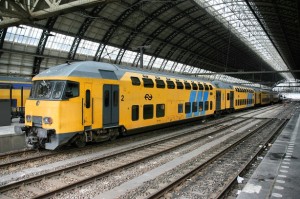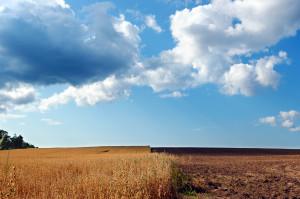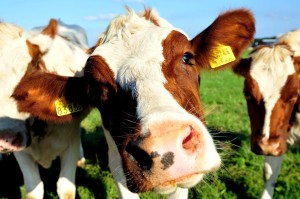Worldlog Semena 27 – 2014
Duas descobertas na semana passada!
A primeira é que os deputados têm de viajar de trem se tiverem trabalhando em locais que não excedam 750 km Um passo bom para um mundo mais sustentável.

MPs vão regularmente em uma visita de trabalho, também para outros países. O acordo era que as visitas internacionais a 500 km teriam de ser por via. Por exemplo, uma visita a Berlim ainda era feita por aeronave (do governo). Isto enquanto voar é mais poluente e existem excelentes ligações ferroviárias com os países vizinhos e os países em torno dele.
Em segundo lugar nossa moção para parar com os movimentos bancários adotados pelo Royal Bank of Scotland foram aceitos. Falei semana passada no Worldlog . Royal Bank of Scotland ficou com nota insuficiente no teste holandes o “ Eerlijke bankwijzer’‘, onde a pesquisa foi feita sobre os direitos humanos, bem-estar animal e o meio ambiente.

Royal Bank of Scotland é o banqueiro do governo desde 2008 e faz o pagamento do parlamento e ministérios do governo. Para isso, o banco recebe 1,7 a 2,0 milhões por ano. Devido a escândalos de bônus circundantes e do caso Libor-affaire o Royal Bank of Scotland teve más notícias. Leia mais no Worldlog da semana passada.
A semana passada também foi marcado pela GM. As regras europeias para a autorização e cultivo de culturas geneticamente modificadas vão mudar a curto prazo. A conseqüência será que os Estados-Membros terão a opção de mudar o papel para manter o cultivo de GM no seu território .Mas em troca será permitido mais culturas de OGM na Europa. A oportunidade também é ótima para que os Estados que proíbem o cultivo de OGM no seu território sejão processados por empresas como a Monsanto.

Nos esforçamos para uma Europa livre de OGM! Até que este seja o caso, os Estados-Membros teriam de proibir em própria possibilidade seus territórios o cultivo de culturas geneticamente modificadas O acordo agora assinado entre os ministros do Meio Ambiente dos Estados em nossa opinião é totalmente inadequado se conseguir tal proibição nacional.
Também estive ocupada semana passada em administração a proibição de choques elétricos e amarração permanente de gado. A amarração permanente de vacas e a administração de choques elétricos no animal para forçá-la a não fazer suas necessidades na área de repouso não se encaixa em um país civilizado. Secretário Dijksma de Estado no debate já prometeu investigar as empresas que usam choques elétricos.

Nos velhos estábulos acontece que as vacas são permanentemente amarradas a uma corda ou corrente. A chamada “koetrainer ‘pode ser usado para manter o local de desembarque da vaca amarrada limpo. Treinadores de vaca são os fios de corrente elétrica pendurados sobre o dorso da vaca. Quando as vacas defecam ou urinam recebem um choque elétrico, de modo que dão um passo para trás e o o local permanece limpo.
Fiz perguntas em fevereiro deste ano sobre amarrar o gado. Vacas amarradas não podem andar e têm espaço limitado. Isso pode causar problemas de saúde e o bem-estar das vacas é severamente comprometido. Então parem com estas práticas animais hostis impróprias.
Esta é uma boa campanha para ser apoiada! Este grupo de ação levanta dinheiro para limpar (principalmente de plástico) os oceanos. Após 19 dias de campanha já conseguiram uma quantia de $ 750.000. Também ajude-os a tirar os plásticos dos oceanos
Para todos aqueles que dizem que ainda não é possível realizar os grandes parques solares, no Chile há uma prova contrária. É possível! Ou seja Chile abre o maior parque solar na América Latina. 🙂
Atenciosamente, Marianne
Two breakthroughs in the past week!
The first is that the Members of the Parliament will in future have to travel by train if they have work appointments that are no further than 750 kilometres away. This is a wonderful step towards a more sustainable world.

Members of the Lower House frequently make working visits, also to other countries. The agreement was that international working visits up to 500 kilometres away would have to be made by train. For instance, for visits to Berlin the (government) plane was thus standardly used. This is despite the fact that flying is environmentally contaminating and that there are good train connections with our neighbouring countries and the countries surrounding them.
Secondly, our motion was adopted to stop banking with Royal Bank of Scotland. I already spoke of this in last week’s Worldlog. Royal Bank of Scotland scores a poor grade in the test of the Dutch ‘Fair Bank Guide’, which investigates human rights, animal welfare and the environment.

Royal Bank of Scotland is the State’s principal banker and has been taking care of the payment traffic of the Lower House and of all ministries since 2008. With this, the bank earns 1.7 to 2.0 million euros on an annual basis. Because of scandals regarding bonuses and the Libor Affair, Royal Bank of Scotland received bad press. Read more about this in last week’s Worldlog.
Last week, the focus was also on genetic technology, as European regulations on the admission and cultivation of genetically manipulated crops will change in the short term. The consequence thereof will be that Member States are given the option to reject the cultivation of genetically modified crops within their territory. In return, however, more genetically modified crops will be permitted in Europe. Furthermore, there is a big chance that a company like Monsanto will bring charges to Member States which prohibit genetic cultivation within their territory.

We aim at a Europe without genetic technology! But until that is the case, Member States should have the option themselves to prohibit the cultivation of genetically modified crops within their territory. The agreement that was recently made between the Member States’ Ministers of the Environment is completely insufficient to effect such national prohibition as far as we are concerned.
The past week, I have also stood up for the banning of electric shocks and the permanent tying of cattle in cattle farms. The permanent tying of cattle and the use of electrical shocks to force the animal not to relieve itself in its resting area does not suit a civilised country. State Secretary Dijksma did promise in the debate that she would investigate how many companies use electrical shocks.

Cows are frequently permanently tied by a rope or chain in old stables. A so-called ‘cow trainer’ can be used to keep the resting area of the tied cow clean. Cow trainers are live wires that are hung above the back of the cow. When relieving themselves they will get an electric shock so that they take back a step and keep the resting area clean.
In February of this year, I already asked questions about the tying of cows. Cows that are chained cannot walk and have limited room to move. This can result in health problems and it seriously affects the welfare of the cows. They must stop these highly animal-unfriendly practices!
This is a great campaign to support! This action group collects money to clean up the oceans (make them free from plastics). After 19 days of campaigning, they have already collected an amount of 750,000 dollars. Please help to clean the oceans from plastic!
Chile has proved the contrary to all people who said that large solar power plants are not yet possible. It is possible! Chile is opening Latin America’s largest solar power plant. 🙂
Greetings, Marianne